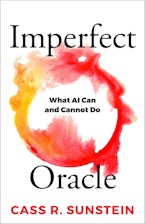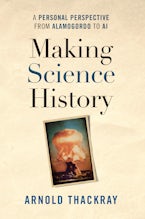Best-selling author Cass R. Sunstein outlines the promise and limits of artificial intelligence
Imperfect Oracle is about the promise and limits of artificial intelligence. The promise is that in important ways AI is better than we are at making judgments. Its limits are evidenced by the fact that AI cannot always make accurate predictions—not today, not tomorrow, and not the day after, either.
Natural intelligence is a marvel, but human beings blunder because we are biased. We are biased in the sense that our judgments tend to go systematically wrong in predictable ways, like a scale that always shows people as heavier than they are, or like an archer who always misses the target to the right. Biases can lead us to buy products that do us no good or to make foolish investments. They can lead us to run unreasonable risks, and to refuse to run reasonable risks. They can shorten our lives. They can make us miserable.
Biases present one kind of problem; noise is another. People are noisy not in the sense that we are loud, though we might be, but in the sense that our judgments show unwanted variability. On Monday, we might make a very different judgment from the judgment we make on Friday. When we are sad, we might make a different judgment from the one we would make when we are happy. Bias and noise can produce exceedingly serious mistakes.
AI promises to avoid both bias and noise. For institutions that want to avoid mistakes it is now a great boon. AI will also help investors who want to make money and consumers who don’t want to buy products that they will end up hating. Still, the world is full of surprises, and AI cannot spoil those surprises because some of the most important forms of knowledge involve an appreciation of what we cannot know and why we cannot know it. Written in clear, jargon-free English and grounded in deep understanding, Imperfect Oracle provides a distinctly useful perspective on this complex debate.





